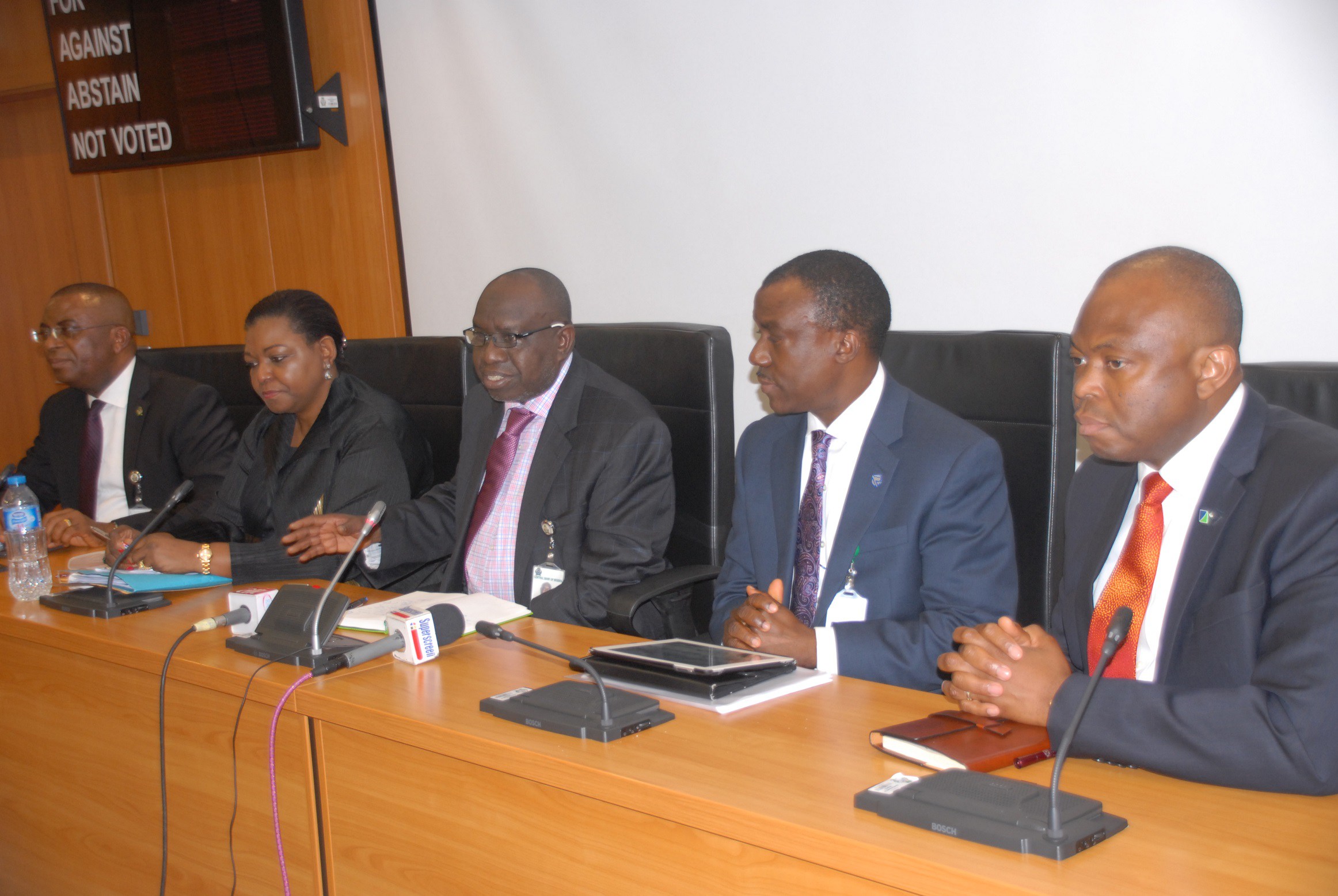The Nigerian Bankers’ Committee, comprising financial services operators and the sector regulator, the Central Bank of Nigeria (CBN), Thursday said the Nigerian economy was steadily pulling out of recession on improved economic indices.
The committee gave the review at the end of its 331st meeting in Abuja, saying indices on non-oil sector growth in the second quarter of the year showed the economy could recover earlier than expected.
Ahmed Abdullahi, CBN’s director of banking supervision, told reporters at the end of the meeting that the CBN, in particular, realized about $4 billion in May from the export and investors’ window it created in the foreign exchange market.
He said the $4 billion was not only a reflection of the volume of trading through the export and investors’ window but also the banks’ effort to rally support towards economic recovery.

Abdullahi, who was accompanied to the briefing by Emeka Emuwa, managing director of Union Bank, said the realized money was part of efforts by the banks to join forces with other key interest groups to accelerate the country’s economic recovery, adding that the positive development shows the banks have contributed massively to bringing foreign direct investments (FDIs) into the market.
“We think things will be looking up. We are hopeful things ar
e going in the right direction,” he said.
Abdullahi remarked that although the numbers are yet to be out from the National Bureau of Statistics (NBS), the fact that major non-oil sectors have witnessed positive growth make analysts believe the economy could be out of recession by the second quarter of 2017.
“We await the number from the NBS. But if one looks at the performance of the capital market and the stability in the foreign exchange market, one would see that a lot of progress has been made in getting the economy out of recession,” he pointed out.
Emuwa, on his part, said the committee was generally happy with the progress in the economy, saying the positive development was capable of generating a ripple effect on banking and other sectors of the economy.
Read also: Nigeria’s mobile economy not gaining traction on low adoption of smart phones, mobile money
He indicated that the board of the Agriculture and Small and Medium Enterprises Investment Fund was inaugurated, along with a project review committee to further provide access to funding of small-scale agricultural activities, which will facilitate the disbursement of N26 billion equity fund for agriculture and small businesses in the country.
Emuwa, therefore, advised those interested in accessing funds or looking for equity to support their agriculture or small and medium enterprises (SMEs) to approach their banks now and apply to enable them to conduct preliminary reviews before passing such requests to the project review committee.
The board consists of the managing directors of Guaranty Trust Bank, Access Bank, First Bank, Zenith, and UBA, along with CBN directors of banking supervision and development finance.
On the other hand, the project review committee comprises the managing directors of FCMB, Unity, and Sterling Banks.
The Small and Medium Enterprises Equity Investment Scheme is a voluntary initiative of the Bankers’ Committee as a response to the Federal Government’s concerns and policy measures to promote SMEs as vehicles for rapid industrialization, sustainable economic development, poverty alleviation, and employment generation.
The scheme requires all commercial banks in the country to provide 10 percent of their profit after tax (PAT) for equity investment and promotion of small and medium enterprises.
The funding to be provided under the scheme will be in the form of equity investment in eligible enterprises.








Problem with Nigeria Revision of first-hand account of the AGSMEIS programme (2)